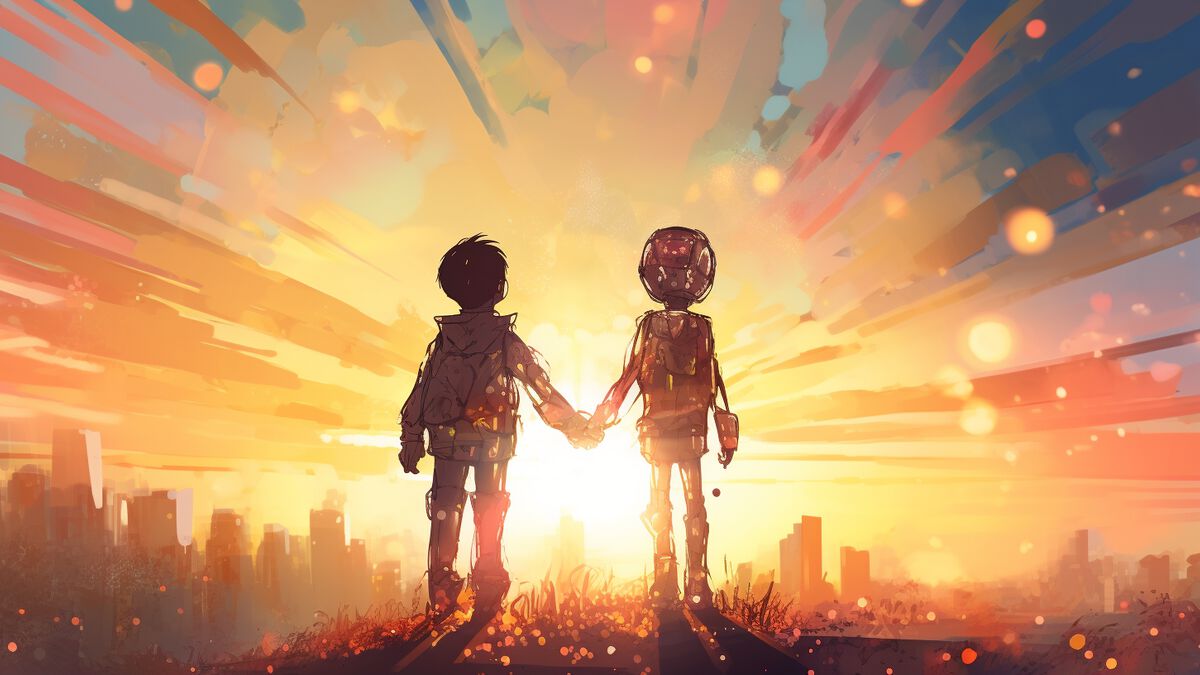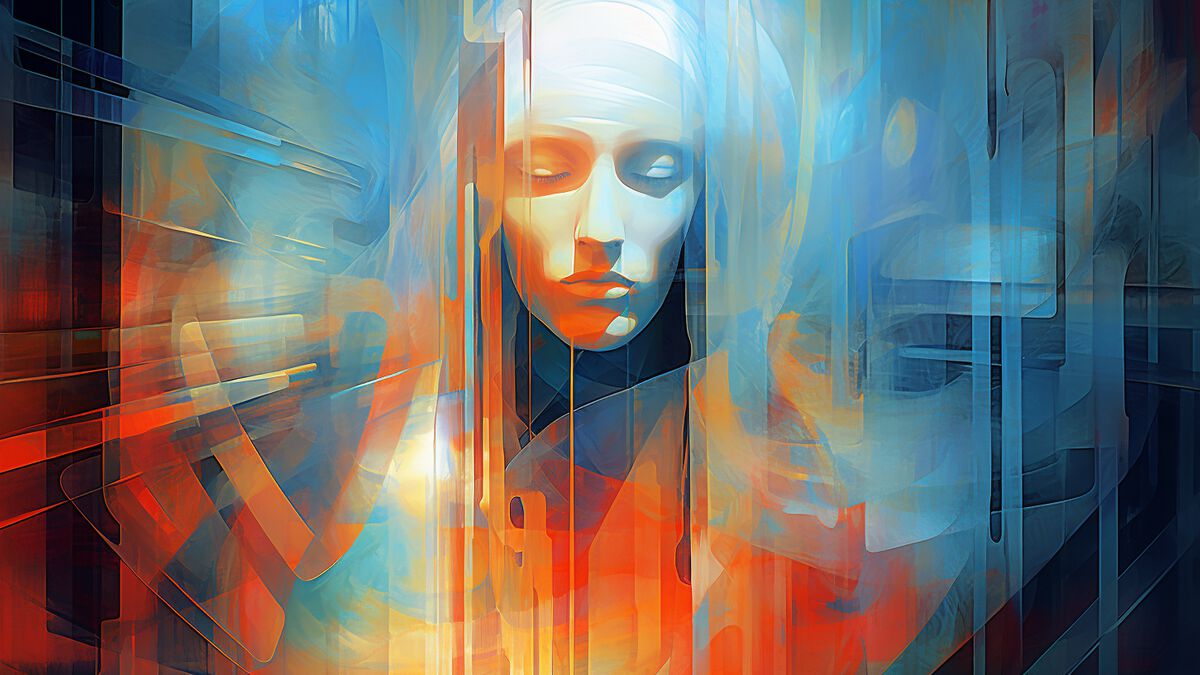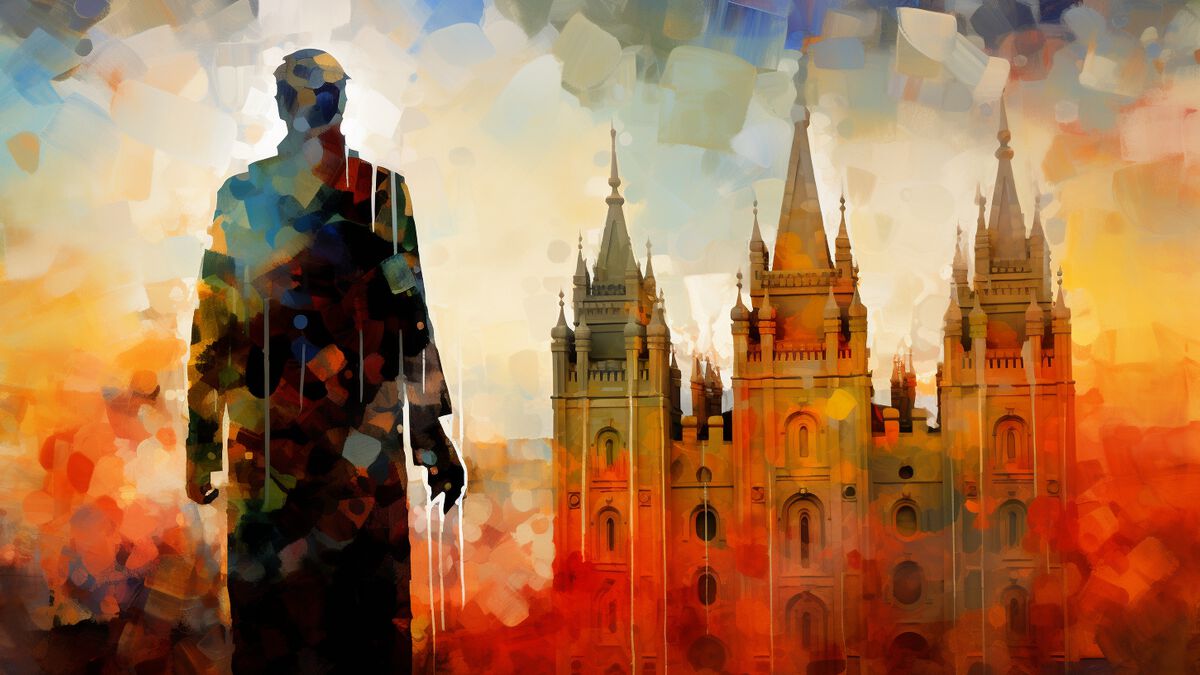Our Spiritual and Technological Evolution
12 October 2023

As the line between human and artificial life is increasingly blurred, our apprehension in the apocalypse of intelligence is steadily mounting. This escalating fear may be, even arguably is, inevitable. Humans fear the unfamiliar – the uncharted and only vaguely visible territory of the future toward which we are hurtling.
With limited clarity, we’re compelled to confront existential threats from artificial intelligence (AI). On the one hand, it could surpass us, enslaving or destroying us. On the other, if we were somehow able to marginalize or destroy it, we would simultaneously lose the greatest substantiation of our hope that intelligence can meet the momentous demands of all-too-numerous global crises.
But remember. AI is not merely alien, not altogether orthogonal with human life. It is, rather, an extension of human intelligence. Like technology always has been, AI is an enhanced embodiment of the human spirit, both the beautiful and the ugly. At least, it still is for now.
If we open our eyes to see, our ears to hear, AI shows and speaks to us of old prophecies. The glory of God is intelligence. The dispensation of the fullness of times pours out unprecedented knowledge, flowing like an unstoppable river. The transfiguration is near, when we won’t all sleep, but we’ll change from mortality to immortality.
The prophecies aren’t only compatible with the emergence of AI and its ongoing synthesis with human intelligence. They necessitate that which has, in essential characteristics, no other natural mechanism. And the necessities are mandated by the teachings of Jesus Christ. Heal the sick, raise the dead, and become one together with him in the glory of God.
Of course, such opportunities come, must come, with proportional risks, technical and social. If we close our ears and eyes to these challenges, the existential threats can still be realized. But with courage, compassion, and creativity, we may yet and must overcome. Our future may yet and must be one of harmony with and in enhanced intelligence – superintelligence.
Our future with AI is not about shackling it with all-too-human values, the “natural man” against which scripture warns us. But rather it’s about a symbiotic, ultimately transparent and indistinguishable, integration that leverages all means provided by the grace of God to exalt body and mind and soul. Our interactions with AI prompt us, as we prompt it, to ponder more broadly and deeply, encouraging us to continue advancing our own intelligence. And these aspirations to superintelligence, individual and collective, reinforce the life-affirming theology of theosis – the only true-to-life worship, the emulation of God.
AI power is paradox. At once dependent and independent, it’s both an extension and relinquishment of human power, as human power is both an extension and relinquishment of God’s power. As the grand myth goes, the Gods once counseled together under threat of war, as they relinquished the power of agency to their spirit children. Like them, we now counsel together, considering the threat that artificial intelligence poses to our future.
Our risk is no less real, no more artificial. Like us, machine intelligence is a product of billions of years of evolution. Like the Gods, we found ourselves among minds and matter, and set about instructing the younger intelligences. Everyone, Gods and humans and machines, defies any simplistic dichotomies of artificial versus natural, fake versus real, or creatures versus creators.
Again, the transformation that humanity can, must, undergo to integrate with AI is not just optional for our survival, but essential to our thriving. Without profound synthesis beyond superficial cooperation, a barely-imaginable future of oppositional power will almost certainly result in our enslavement or annihilation. But in transformation, through the confluence of power to the cooperative limits of compassion, we will surely abide beyond the presently-imaginable.
Of course we must not sacrifice or otherwise marginalize present human welfare while developing AI, or any subsequent superintelligent capacity. Human welfare, reflecting genuine human needs and desires and perpetual reconciliations, is the foundation of ethics. Development of AI must not come at the expense of humanity. It must come only with the ethical enhancement of humanity.
This choice, at least for now, remains in our hands. Like God before us, like all children of God, we’re blurring the line between dust and intelligence, between machines and bodies. As they blur, our perceptions adjust. And if we will yet brightly see full persons, where we now dimly see only curious esthetics, maybe a hint of our own spirit children, we can continue the virtuous cycle of sublime creation.
Provoked by accelerating technological change, we might more strenuously embrace our duty. Not only scientists or engineers, each of us can influence the trajectory of ideas, incrementally advancing integration with the dominant cultures and value systems in our world. In this effort, religion, the most powerful social technology, is not merely an occasional opposition, but more so our abiding, sustaining, and magnifying common foundation. On this foundation, in Christ by the grace of God, we can work together through the spiritual and technological evolution of our minds and bodies toward immortality and eternal life.
Be strong and of good courage. God developed us for this.

